Premier Jay Weatherill: Driverless car trial to start on Adelaide’s Southern Expressway in November
SOUTH Australia will embark on a nation-leading trial of driverless cars within months that could lead to sales of the vehicles to the public as soon as 2017. VIDEO: HOW THEY WORK + VOTE IN OUR POLL
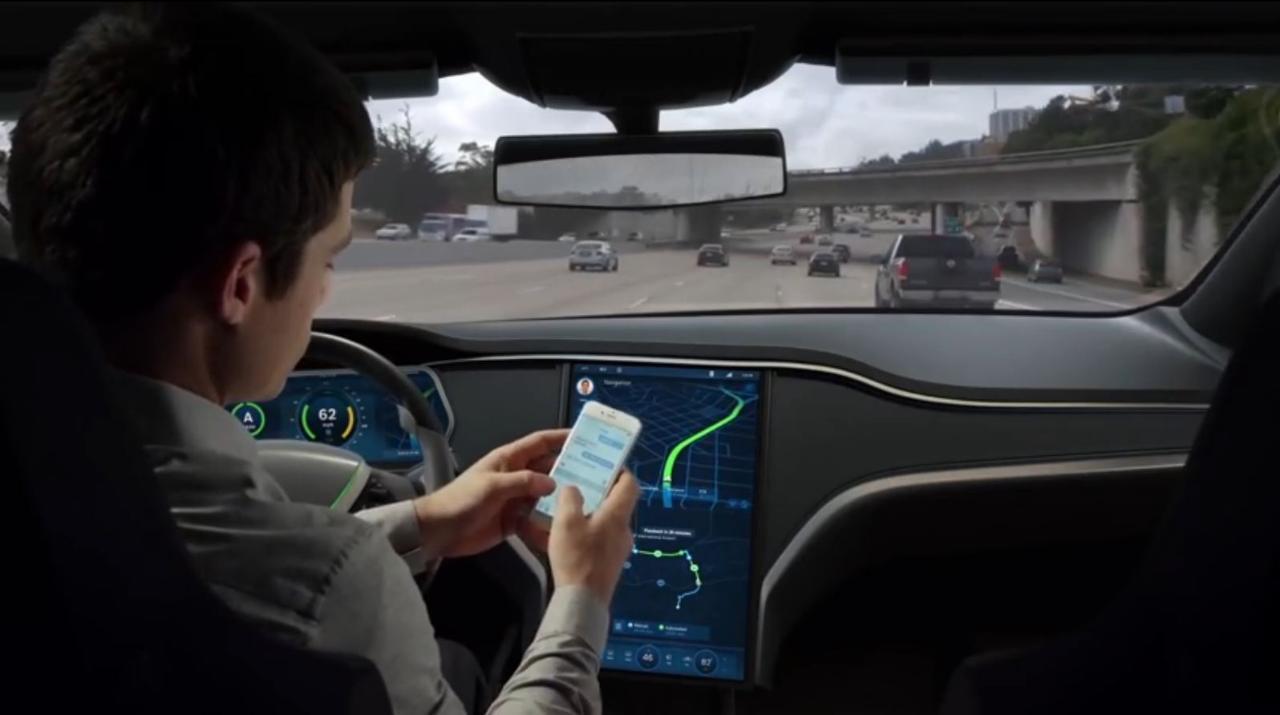
- Governor reveals bold new vision for SA
- Inspire SA: New technology in data sharing, driverless cars
- Driverless cars step closer to reality as Joe Hockey approves plan
SOUTH Australia will embark on a nation-leading trial of driverless cars within months that could lead to sales of the vehicles to the public as soon as 2017.
The State Government has announced a trial of the Volvo vehicles which will include a two-day test on the Southern Expressway in November.
At the Governor’s speech at the opening of Parliament in February, Premier Jay Weatherill announced plans to change state laws to permit driverless cars.
A suite of laws would need to change, including requirements for people to be in active control of the vehicles.
The November test — the first of its kind in the southern hemisphere — will coincide with an international conference in Adelaide on driverless cars that will discuss law changes needed to allow widespread use.
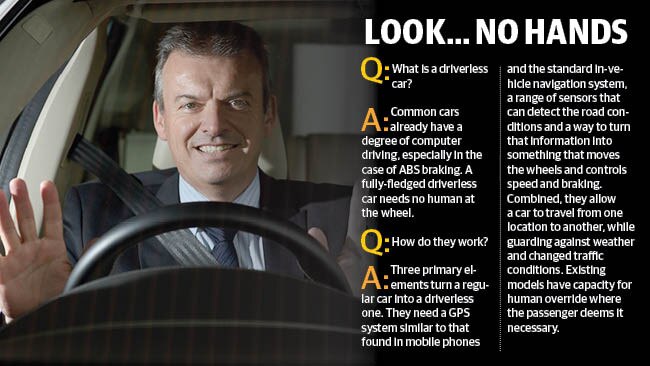
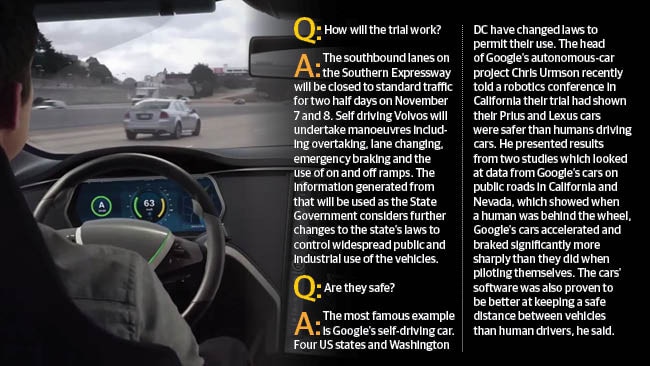
The Adelaide trial, which will involve practice manoeuvres such as overtaking, changing lanes, emergency braking and use of on and off ramps, will be overseen by the Australian Road Research Board Group.
Other manufacturers developing driverless cars include General Motors, BMW, Audi, Ford, Mercedes and Renault. The vehicles are currently being trialled in the UK.
Volvo expects its vehicles, which have been put under rigorous testing in Sweden, will be in the hands of customers by 2017.
Four US states and Washington DC have changed legislation to allow driverless vehicles on their roads. SA aims to be the first Australian state to do so.
Mr Weatherill said the technology promised to improve safety and lower emissions.
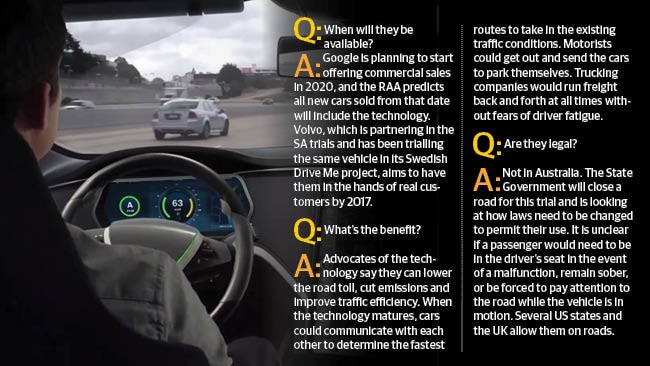
“This trial presents a fantastic opportunity for South Australia to take a lead nationally and internationally in the development of this new technology and open up new opportunities for our economy,” he said.
“Driverless cars have the ability to revolutionise transport in this country and we want to be at the forefront.
“It is our ambition to be a test bed for innovation across a whole range of areas.”
Mr Weatherill said the driverless car industry would be worth $90 billion internationally within 15 years
He dismissed fears the technology would worsen the state’s unemployment problem by costing the jobs of drivers in the public service and industry.
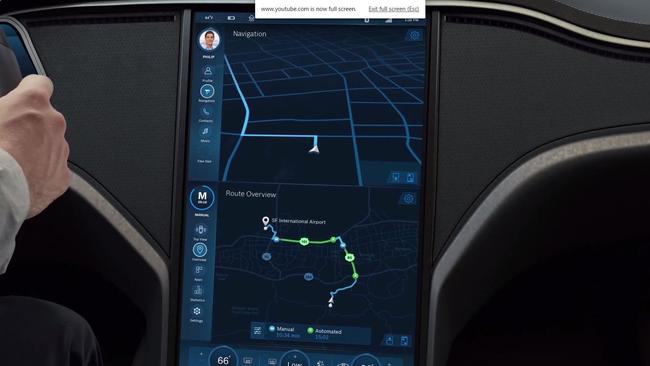
“Every step of technological innovation carries with it change. That means the loss of some jobs in one area, but the creation of jobs in another area,” he said.
“For every loss of job that you might see in one sector of the economy, you’ll see the creation of jobs in the hi-tech sector.
“That’s the future, not looking back at the old economy.”
ARRB group managing director Gerard Waldron said automated vehicles were “far from science fiction, but rather a short-term reality that Australia needs to be prepared for”.
Opposition transport spokesman Corey Wingard said the Government needed to focus on measures to deal with SA’s jobless crisis, after the unemployment rate hit a 15-year high of 8.2 per cent this month.
“I would like the Government to explain how driverless or autonomous cars will generate jobs in South Australia straight away,” he said.
“We have a jobs crisis in SA. We need to be looking at ventures that will create jobs immediately.”
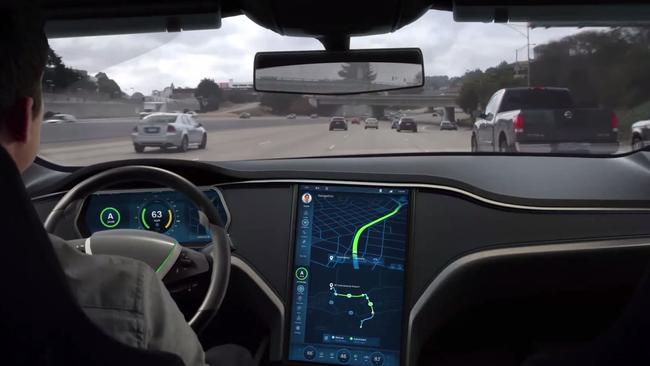
RAA public affairs manager Penny Gale said the state should be proud it was to become the first state to trial the technology, which would become mainstream by 2020.
She said the vehicles promised to boost productivity and reduce congestion.
“By 2020 all cars that come off the production line will have some ability to drive themselves, and we need to prepare,” Ms Gale said.
“By applying international research in these trials, we can work towards understanding what is required to make driverless technology suitable for our local road conditions and to keep road users safe.
“Removing the need for a driver will open up a whole range of transport opportunities for many of our members, particularly people with disabilities and the elderly.
“Removing the reliance on human behaviour will undoubtedly save lives.”
Ms Gale said it was understandable many people would be hesitant about a computer assuming the role of a human driver.
“Who knows, one day not too far from now, common problems like finding a car park or dealing with peak-hour congestion could become a thing of the past, and Adelaide will have led the way by embracing and testing this new technology,” she said.
Flinders University vice-chancellor Colin Stirling, whose uni is a partner in the trial, said it loomed as the biggest transport reform since cars took over from the horse and cart.
He said Flinders would design a solar car by 2017 as a forerunner to development of a “solar autonomous” vehicle.
Taxpayers will spend about $30,000 sponsoring the driverless vehicle conference.
